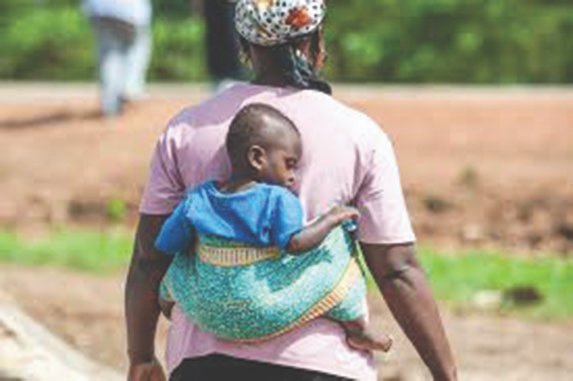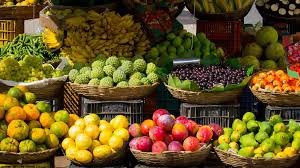Nutrition
Galamsey: Stealing nutrition from Ghana’s children

On the banks of the River Pra, Ama, a mother of three, points to the murky water flowing past her village. “We used to drink from this river. We used to fish here,” she says. “Now, even our crops die when we use it to water them.” Ama’s children rarely eat fish anymore, and vegetables from her once-fertile farm are scarce. Their daily meals now consist mostly of cassava and a little palm oil which is filling, but far from nutritious.
Ama’s story is not unique. Across Ghana’s mining communities, illegal small-scale mining, or galamsey, is robbing families of the very resources they need to eat well and stay healthy. The focus of public debate has often been on the destroyed forests, poisoned rivers, and billions lost in gold revenue. But beneath the surface lies a quieter tragedy: a nutrition crisis with lasting consequences for Ghana’s children.
With rivers poisoned by mercury and cyanide, farming and fishing have collapsed in many galamsey zones. Families that once relied on fish as a key source of protein now go without. Crops watered with polluted streams fail to thrive, while fertile cocoa and vegetable farms have been dug up and abandoned. With food production disrupted, prices climb, and poor households are forced to rely on cheap, starchy meals with little nutritional value.
The impact is already showing. Health workers in mining areas report higher cases of child stunting, anaemia among women, and underweight children compared to farming districts. Pregnant women face greater risks during childbirth, while children raised on nutrient-poor diets struggle with growth, learning, and long-term productivity.
The problem stretches far beyond the mining pits. When rivers like the Pra, Ankobra, and Offin are polluted, irrigation systems and fisheries downstream are also destroyed, threatening food supplies in entire regions. In the long run, galamsey doesn’t just damage land, it undermines Ghana’s fight against hunger, malnutrition, and poverty.
If Ghana is serious about protecting its people, tackling galamsey cannot be seen only as an environmental or economic battle. It must also be seen as a public health and nutrition emergency. Safeguarding rivers and farmland means safeguarding the right of every child to eat a balanced diet and grow to their full potential.
Ama’s children, and thousands like them, deserve more than poisoned water and barren fields. They deserve safe food, clean water, and a future free from malnutrition. Ending galamsey is not just about saving the land; it is about saving Ghana’s nutritional future and the next generation.
We call on government to deploy multi-sector response teams that include health and agriculture officials, establish mobile nutrition clinics in affected areas, and mandate nutrition impact assessments for all mining permits. We urge traditional authorities and assemblies to enforce local bylaws and support community-led river monitoring systems.
We challenge citizens to demand quarterly transparency reports on galamsey enforcement and nutrition indicators from their MPs and district assemblies and we encourage the media to continue investigating the financial networks behind illegal mining. Ghana has the laws and resources, what’s missing is the political courage to enforce them. Ama’s village, and countless others like it, cannot wait any longer.
Feature Article by Women, Media and Change under its Nourish Ghana: Advocating for Increased Leadership to Combat Malnutrition Project
Join our WhatsApp Channel now!
https://whatsapp.com/channel/0029VbBElzjInlqHhl1aTU27
Nutrition
The First 1,000 Days: Why Ghana’s investment in maternal and child nutrition matters for human capital development

From the start of pregnancy to a child’s second birthday, the first 1,000 days, represents the most important window for human development. Good nutrition shapes the foundation.
During this short window, the body and brain grow at a pace that will never be repeated. When nutrition is inadequate, the damage to physical growth and cognitive development is often permanent. No later investment in education or healthcare can fully reverse these losses. Ghana’s future workforce and economic progress depend on getting nutrition right during this critical period.
Science is clear. A baby’s brain develops rapidly during pregnancy and early childhood, forming the foundation for all future learning and health. Adequate nutrients during pregnancy support the formation of neural connections that underpin learning, memory, and emotional regulation. When pregnant women lack essential nutrients, their babies begin life at a disadvantage. When young children experience severe malnutrition, they miss critical growth periods that do not return.
Ghana faces serious challenges during this critical window. An estimated 68,517 children suffer from severe acute malnutrition. Between 37 and 63 percent of pregnant women are anemic, with iron deficiency particularly common in late pregnancy. These problems translate directly into diminished potential. Malnourished children perform worse in school, earn less as adults, and face higher risks of chronic diseases. The economic losses multiply across generations.
Research worldwide shows that nutrition investments during the first 1,000 days deliver exceptional returns. Well-nourished children learn better, perform better academically, and become more productive adults. Countries that invest in early nutrition experience faster economic growth through stronger, more productive workforces.
Ghana already has effective solutions. Multiple Micronutrient Supplements for pregnant women reduce the risk of low birth weight and preterm birth, while Ready-to-Use Therapeutic Food enables high recovery rates for children with severe acute malnutrition. Both are approved in Ghana’s health guidelines. The problem is not lack of knowledge but lack of access. Coverage remains limited because financing depends heavily on donor support rather than sustainable domestic systems.
Integrating these nutrition interventions into the National Health Insurance Scheme would help close this gap. With a large proportion of mothers and young children already enrolled, NHIS provides a platform for nationwide reach. Recent reforms to health financing further strengthen the case for prioritising essential nutrition services within the scheme.
Ghana’s development agenda emphasizes industrialisation, innovation, and economic transformation. Achieving these goals requires a workforce capable of learning, problem-solving, and sustained productivity. Human capital development, however, does not begin at universities or training centers. It begins before birth.
The first 1,000 days offer no second chances. Each year of delay means another group of children enter adulthood carrying preventable disadvantages. Investing in nutrition during this critical window is not only a health priority; it is a foundational investment in Ghana’s economic future.
Feature article by Womec, Media and Change under its Nourish Ghana: Advocating for Increased Leadership to Combat Malnutrition project
Join our WhatsApp Channel now!
https://whatsapp.com/channel/0029VbBElzjInlqHhl1aTU27

Nutrition
Importance of Fruits During Ramadan

Ramadan, the ninth month of the Islamic lunar (Hijri) calendar, is a period of fasting, reflection, and spiritual growth. A vital part of observing Ramadan is Iftar—the evening meal with which Muslims break their daily fast at sunset. Fruits play an essential role in Iftar, providing nutrition, hydration, and energy after long hours of fasting.
Here are some of the most recommended fruits to include in your Ramadan meals:
Dates
Dates are traditionally used to break the fast. They are rich in sugar, fibre, potassium, vitamins, and minerals, helping to restore energy quickly after fasting.
Watermelon
Watermelon is highly consumed for hydration, as it is composed mostly of water. It can be enjoyed in slices or blended into refreshing smoothies.
Bananas
Bananas are an excellent source of potassium, which helps maintain fluid balance and reduce thirst. They also provide natural energy to keep you going after fasting.
Apples
Apples are fibre-rich and nutritious, promoting heart health, aiding weight management, and improving digestion.
Cucumber
Cucumber is one of the best hydrating fruits, composed of water and fibre, which aids digestion while revitalising the body.
Pawpaw (Papaya)
Pawpaw is low in calories and sugar, rich in fibre, and promotes healthy digestion, hair, and skin. It is a nutritious addition to any Iftar meal.
Including a variety of these fruits during Ramadan not only helps replenish lost nutrients but also supports overall health, digestion, and hydration throughout the fasting period.
By Linda Abrefi Wadie
Join our WhatsApp Channel now!
https://whatsapp.com/channel/0029VbBElzjInlqHhl1aTU27







